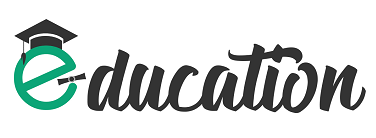“Our integrity is never worth so much as when we have parted with our all to keep it. – Ovid Ovid”
Hello Readers,
We have all borrowed notebooks from our friends at some point in school, But we just did not scribble all over them or rip out pages right? Well, online learning is much the same. You are accessing valuable resources and interacting in a shared space. Just like that borrowed book, there is an ethical responsibility to treat it with respect.
As per ICPA (The InterCultural Protocol Academy of Japan), netiquette is becoming increasingly crucial in today’s global informative society. It promotes collaboration and cultivates a sense of belonging among learners, enhancing the overall educational experience.
This guide will equip you to navigate the online learning environment ethically. We will explore the key areas where digital ethics play a role and help you to become a responsible and successful online learner.
The Importance of Academic Integrity
Honesty is the Best Policy
When we are studying from our home, it is very obvious that we will have many distractions. This flexibility should not be an excuse to compromise honesty. You do not have to skip any Tests, Assignments, or Discussions just because no one is watching you. It is up to you to hold yourself accountable. Taking shortcuts like copying someone else’s work (plagiarism) or using unauthorised tools during exams defeats the purpose of learning.
Giving Credit Where Credit’s Due
Do you remember your school science lab where you conducted research projects? Referencing your sources is crucial online too. Whenever you use any information from online resources, you should cite them properly. This shows respect for the original creator’s work and strengthens your own assignments.
Collaboration vs Collusion
There will be many instances when you will be involved in group projects and discussions. These group activities can be a wholesome learning experience but there is a fine line between collaboration and collusion. Collaboration involves everyone contributing and learning from each other on the other hand Collusion is when someone takes credit for work they did not do, like copying someone else’s idea of a group project.
Your Online Manners: Netiquette
Whenever we talk or interact with anyone in real life, we show courtesy and respect. Online communication requires courtesy and respect, too. Here are some tips for good online etiquette, often called “Netiquette.”
-
Think Before You Post
You might feel that the online world is temporary, but the things you post online can have long-lasting consequences. You should not post anything that might hurt others’ sentiments. Before hitting “Send” on a discussion forum or comment, just take a moment to reread your message. Is it respectful and relevant to the topic? This will help you avoid making inflammatory or offensive statements.
-
Respectful Language
Remember, there is a real person behind the other side of the screen. When communicating with classmates from around the world, you should always use professional language and avoid slang or informal abbreviations that might confuse the other person. You should also be mindful of cultural differences.
-
Stay on Topic
Online discussions can get lively and interesting, but it is important to stay focused on the subject at hand. If you want to share something unrelated then you should consider sending a private message or starting a new discussion thread.
Protecting Privacy and Security
The online learning environment might involve sharing personal information or accessing course materials on different platforms. Here is how to be mindful of privacy and security:
-
Beware of Phishing Attempts
You should always be cautious of emails or messages claiming to be from your online learning platform or instructor. These could be phishing attempts that can steal your login credentials. You have to make sure you are checking the sender’s email address carefully and avoid clicking on suspicious links.
-
Strong Passwords are Key
Just like securing your Facebook and Instagram accounts, try to use strong and unique passwords for your online learning platforms, too. Avoid using easily guessable passwords like your birthday or pet’s name. You can use a password manager to help you keep track of different logins.
-
Think Before You Share
As already mentioned above, online learning often involves collaboration, you should be mindful of what personal information you share in public forums. You should avoid sharing your personal information such as Address, Phone Number, or other sensitive details unless absolutely necessary.
Being a Responsible Digital Citizen
Online learning broadens your reach and lets you connect with people from diverse backgrounds. Here is how to be a responsible digital citizen in this online learning community:
-
Critical Thinking Is Key
The Internet is a vast ocean of information, but not all of it is reliable. You should develop your critical thinking skills to evaluate the information you find. You can refer to reputable sources and fact-check information before sharing it. This will help you avoid spam or misleading information.
-
Combating Cyberbullying
Sadly, cyberbullying can occur in online learning environments too. If you experience any kind of bullying behaviour, you should report it to the concerned authorities right away.
Remember, online harassment is a serious issue, and some people can help.
-
Digital Inclusion
Not everyone has the same resources. Always be mindful of classmates who might have different levels of access to technology or the Internet. If you are discussing online resources, consider suggesting alternatives for those who might not be able to access them.
Takeaway
By following these netiquette rules, you can become a responsible and successful online learner. Remember, online learning communities rely on mutual respect and trust. By acting ethically, you contribute to a positive environment and create a healthy social impact.




